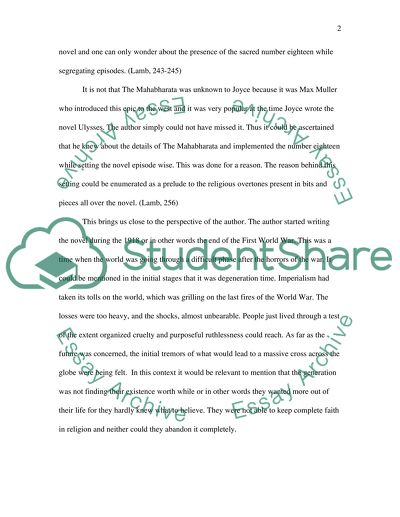Cite this document
(“An open Assignment on Joyce's Ulysses Book Report/Review”, n.d.)
An open Assignment on Joyce's Ulysses Book Report/Review. Retrieved from https://studentshare.org/miscellaneous/1528124-an-open-assignment-on-joyces-ulysses
An open Assignment on Joyce's Ulysses Book Report/Review. Retrieved from https://studentshare.org/miscellaneous/1528124-an-open-assignment-on-joyces-ulysses
(An Open Assignment on Joyce'S Ulysses Book Report/Review)
An Open Assignment on Joyce'S Ulysses Book Report/Review. https://studentshare.org/miscellaneous/1528124-an-open-assignment-on-joyces-ulysses.
An Open Assignment on Joyce'S Ulysses Book Report/Review. https://studentshare.org/miscellaneous/1528124-an-open-assignment-on-joyces-ulysses.
“An Open Assignment on Joyce'S Ulysses Book Report/Review”, n.d. https://studentshare.org/miscellaneous/1528124-an-open-assignment-on-joyces-ulysses.


